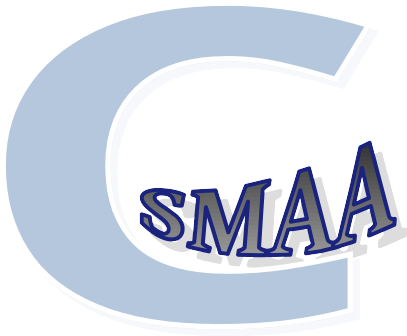The 12th Workshop on Optimization and Learning in Multiagent Systems (OptLearnMAS’21)
To be held in conjunction with the International Joint Conference on Autonomous Agents and Multiagent Systems (AAMAS), Online, from May 3-7, 2021.
============
This workshop invites works from different strands of the multi-agent systems community that pertain to the design of algorithms, models, and techniques to deal with multi-agent optimization and learning problems or problems that can be effectively solved by adopting a multi-agent framework.
The workshop is of interest both to researchers investigating applications of multi-agent systems to optimization problems in large, complex domains, as well as to those examining optimization and learning problems that arise in systems comprised of many autonomous agents. In so doing, this workshop aims to provide a forum for researchers to discuss common issues that arise in solving optimization and learning problems in different areas, to introduce new application domains for multi-agent optimization techniques, and to elaborate common benchmarks to test solutions.
OptMAS 2021 website: https://optlearnmas21.github.io/
Workshop submission site: https://easychair.org/conferences/?conf=optlearnmas21
Important dates
—————
* March 3, 2021 – Submission Deadline
* April 3, 2021 – Acceptance notification
* April 30,2021 – AAMAS/IJCAI Fast Track Submission Deadline
* May 1, 2021 – AAMAS/IJCAI Fast Track Acceptance Notification
* May 3 or 4, 2021 – Workshop Date
Background
———-
Stimulated by emerging applications, such as those powered by the Internet of the Things, critical infrastructure network, and security games, intelligent agents commonly leverage different forms optimization and/or learning to solve complex problems. The goal of the workshop is to provide researchers with a venue to discuss techniques for tackling a variety of multi-agent optimization problems. We seek contributions in the general area of multi-agent optimization, including distributed optimization, coalition formation, optimization under uncertainty, winner determination algorithms in auctions, and algorithms to compute Nash and other equilibria in games. This year, the workshop will have a special focus on contributions at the intersection of optimization and learning. For example, agents which use optimization often employ machine learning to predict unknown parameters appearing in their decision problem. Or, machine learning techniques may be used to improve the efficiency of optimization. While submissions across the spectrum of multi-agent optimization are welcome, contributions at the intersection with learning are especially encouraged.
Keywords
——–
Topics include but are not limited to the theory and applications of:
* Optimization for learning agents
* Learning for multiagent optimization problems
* Distributed constraint satisfaction and optimization
* Winner determination algorithms in auctions
* Coalition formation algorithms
* Algorithms to compute Nash and other equilibria in games
* Optimization under uncertainty
* Optimization with incomplete or dynamic input data
* Algorithms for real-time applications
* Cloud, distributed and grid computing
* Learning and Optimization in Societally Beneficial Domains
Submission Information
———————-
Submission URL: https://easychair.org/conferences/?conf=optlearnmas21
Submission Types:
* Technical Papers: Full-length research papers of up to 7 pages (excluding references and appendices) detailing high quality work in progress or work that could potentially be published at a major conference.
* Short Papers: Position or short papers of up to 4 pages (excluding references and appendices) that describe initial work or the release of privacy-preserving benchmarks and datasets on the topics of interest.
Fast Track (Rejected AAMAS or IJCAI papers):
Rejected AAMAS or IJCAI papers with *average* scores of at least 5.0 may be submitted directly to OptLearnMAS along with previous reviews. These submissions will not undergo the regular review process, but a light one, performed by the chairs, and will be accepted if the previous reviews are judged to meet the workshop standard.
All papers must be submitted in PDF format, using the AAMAS-21 author kit. Submissions should include the name(s), affiliations, and email addresses of all authors.
Submissions will be refereed on the basis of technical quality, novelty, significance, and clarity. Each submission will be thoroughly reviewed by at least two program committee members.
Submissions of papers rejected from the AAMAS 2021 and IJCAI 2021 technical program are welcomed.
For questions about the submission process, contact the workshop chairs.
Reviewing process
—————–
Papers will be reviewed by at least 2 program committee members. Criteria for selection of papers will include technical quality, novelty, significance, and clarity.
Format
——
The workshop will be a one-day meeting. It will include a number of (possibly parallel) technical sessions, a virtual poster session where presenters can discuss their work, with the aim of further fostering collaborations, multiple invited speakers covering crucial challenges for the field of multiagent optimization and learning and will conclude with a panel discussion.
Attendance
———-
Attendance is open to all. At least one author of each accepted submission must be present at the workshop.
Organizing committee
——————–
* Ferdinando Fioretto – Syracuse University, NY, USA
* Gauthier Picard – ONERA, Toulouse, France
* Amulya Yadav – Penn State University, PA, USA
* Bryan Wilder – Harvard University, MA, USA
Programme Committee
——————-
* Ana L. C. Bazzan – Universidade Federal do Rio Grande do Sul
* Filippo Bistaffa – IIIA-CSIC
* Alessandro Farinelli – Computer Science Department, Verona University
* Tal Grinshpoun – Ariel University
* Md. Mosaddek Khan – University of Dhaka
* Rene Mandiau – LAMIH, Université de Valenciennes
* Zinovi Rabinovich – Nanyang Technological University
* Juan Antonio Rodriguez Aguilar – IIIA-CSIC
* Marius Silaghi – FIT
* William Yeoh – Washington University in St. Louis
* Makoto Yokoo – Kyushu University
* Roie Zivan – Ben Gurion University of the Negev
* Maryam Tabar – Penn State University
* Hangzhi Guo – Penn State University

Collège Systèmes Multi-Agents et Agents autonomes (SMAA)
collège de l'Association Française d'Intelligence Artificielle (AFIA)